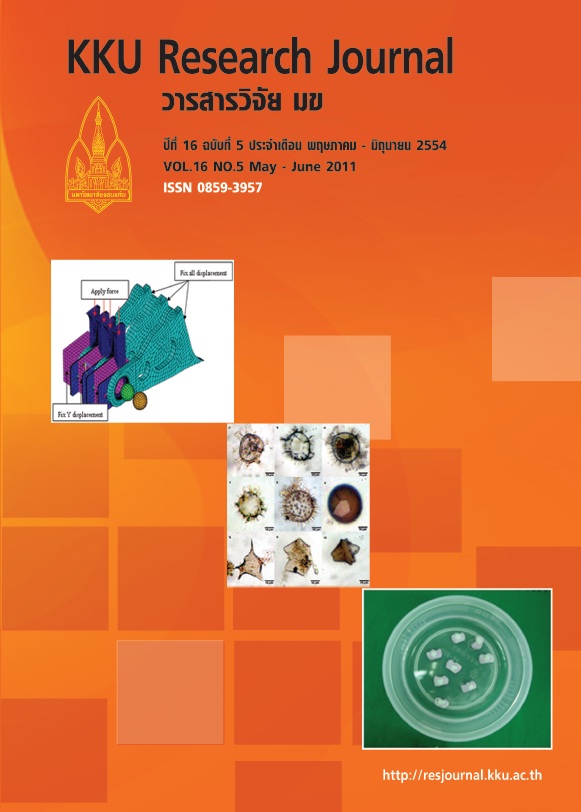Effects of apacider varnish on microhardness of human dental enamel
Main Article Content
Abstract
The purpose of this study is to compare the effects of Apacider® varnish on surface microhardness of sound enamel by using the enamel discs of extracted human third molars. They were randomly divided into 6 groups as follows: group 1; control group (no treatment), group 2; applied Apacider® varnish for 1 minute/week, group 3; applied Apacider® varnish for 3 minutes/week, group 4; applied Apacider® varnish for 5 minutes/week; group 5; applied fluoride varnish for 3 minutes only the first day of treatment and group 6; daily applied CPP-ACP for 3 minutes. All samples were treated for 4 weeks and then stored in artificial saliva at 37oC for 30 days. Vickers microhardness was performed at before and after the treatments using Vicker microhardness test, at 100 g load and at 15 second dwelling time. ANOVA and Tamhane multiple comparison revealed that the treated enamel microhardness in group (4) significantly increased as compared to group (3) and (2) as well as group (1) at p<0.05. However, there was no significant difference between group (5) and (6) at p<0.05.
Article Details
How to Cite
Juntavee, A., Peerapattana, J., Juntavee, N., Luengpailin, S., Chatrchaiwiwatana, S., & Suksupeaw, S. (2017). Effects of apacider varnish on microhardness of human dental enamel. Asia-Pacific Journal of Science and Technology, 16(5), 517–527. retrieved from https://so01.tci-thaijo.org/index.php/APST/article/view/83392
Section
Research Articles


